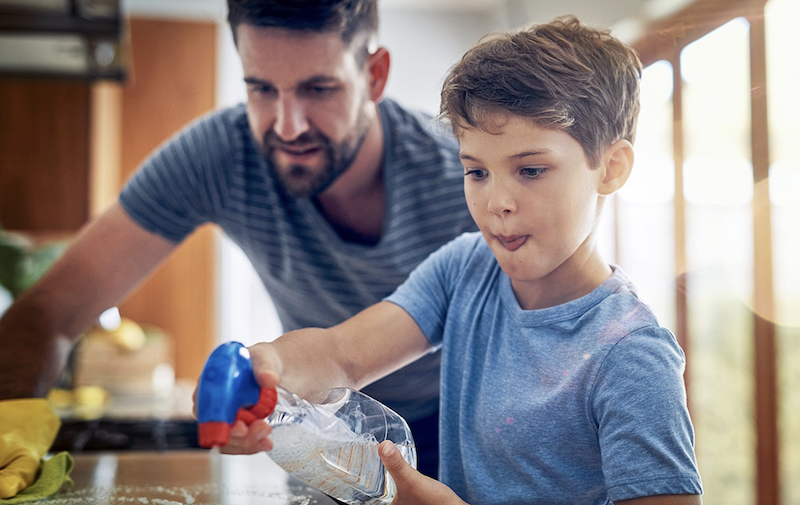As the COVID-19 pandemic cancels classes and closes daycares across the country, Canadian families are spending extended time at home to help slow the spread of the virus.
For many, the coming days seem daunting. Social distancing protects physical health but may have negative effects on mental wellness, especially for children and teens facing abrupt changes to routine.
Although kids may not mourn a missed math class, they likely have some anxious feelings and big questions about the future. As a parent or caregiver in a global pandemic, there are few "right answers."
Christina Rinaldi is a registered psychologist and professor of educational psychology at the University of Alberta. She offers four tips to support children's mental health during COVID-19.
Tip 1: Model calm behaviour
In new situations, children look to their parents and other adults for cues, making it vital that grown-ups manage their own level of panic, Rinaldi says. She acknowledges this is easier said than done in a situation that warrants real worry. But there are practical places to start.
Kids as young as two can sense anxious feelings in their caregivers. For young children, Rinaldi recommends parents explain how good hygiene slows the virus, then model how to wash their own hands thoroughly before showing kids how to do the same.
Even teens follow your lead. "I think it's important to model the kind of behaviours we'd like to see from children … with calmness and a kind of confidence," she says. To reduce their own anxious feelings, Rinaldi suggests adults unplug at times from the alarming minute-by-minute virus updates. This behaviour provides a calm example for older children or teens, who may be overwhelmed by the messages they're seeing on social media.
Tip 2: Guide honest conversations
While Rinaldi recommends limiting the constant stream of news, she emphasizes the importance of having honest, age-appropriate conversations with kids about COVID-19.
Children may listen in on news or conversations and make incorrect assumptions about what they hear. That's why Rinaldi suggests parents find out what their kids actually know about the virus.
This starts with asking questions, then actively listening and validating children's concerns, she says. Match your approach to a child's age and developmental stage. Don't dismiss fears, but be cautious about dwelling on negative feelings. Find ways to guide the conversation toward more hopeful topics.
Rinaldi advises parents to use clear, non-alarmist language and remind children there are doctors, scientists and an entire community fighting the virus. "Sometimes all kids need to know is that people are working towards solutions or trying to make sure that everybody's safe," she says.
Rinaldi also recommends parents direct conversations toward basic, positive facts, especially when big, unanswerable questions arise. This is especially relevant when kids ask about classes being cancelled "indefinitely."
Remind them: the schools will reopen and these things have a beginning and an end, even if we don't know the exact date.
Tip 3: Create a routine
Find proactive ways to keep kids mentally and physically occupied at home, says Rinaldi. In a time when people of all ages might feel helpless, it's useful to give kids tasks that help them find satisfaction and build a sense of accomplishment by the end of the day.
Rinaldi suggests setting up a routine so kids can track their success in a variety of activities, from chores to physical exercise to creative pursuits. Younger children can read books, try a new art project and help out with smaller tasks around the home. Older children or teens can be given extra responsibilities such as caring for siblings or preparing meals. "Opportunities to be successful and work as part of that team might give them a sense of accomplishment and comfort."
Tip 4: Focus on the positive
Ultimately, Rinaldi reminds parents to look for the positive, even in small ways and moments, in these uncertain days. Busy families can rest in the relief of stepping away from the rush of activities and find more time to remind children of what really matters.
"How better to demonstrate that someone is safe, when they are physically surrounded by those who care for and love them?"

We at New Trail welcome your comments. Robust debate and criticism are encouraged, provided it is respectful. We reserve the right to reject comments, images or links that attack ethnicity, nationality, religion, gender or sexual orientation; that include offensive language, threats, spam; are fraudulent or defamatory; infringe on copyright or trademarks; and that just generally aren’t very nice. Discussion is monitored and violation of these guidelines will result in comments being disabled.